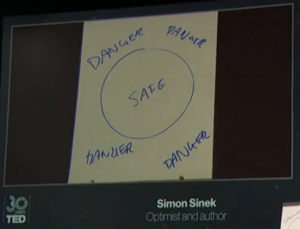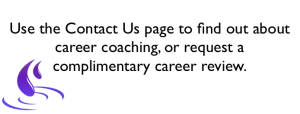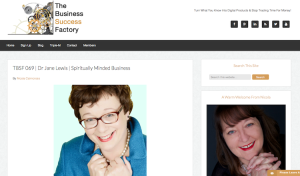![Counting The Cost Of Caring]() Four years ago this week, my mother died. Her anniversary found me reflecting on the cost of caring for her for the last 3 or 4 years of her life. I’m not talking here about monetary cost, but the emotional, mental and spiritual costs, as well as the costs to my career, my business and my confidence. Because caring for elderly, or disabled, or fragile, or mentally ill loved ones does indeed take its toll.
Four years ago this week, my mother died. Her anniversary found me reflecting on the cost of caring for her for the last 3 or 4 years of her life. I’m not talking here about monetary cost, but the emotional, mental and spiritual costs, as well as the costs to my career, my business and my confidence. Because caring for elderly, or disabled, or fragile, or mentally ill loved ones does indeed take its toll.
One of the challenges is that, unlike childcare where there is generally a lot of joy along with the exhaustion, and where you usually know there will come a point when they start to become more independent, when you care for adult loved ones it can become very joyless. In many cases you know they will become increasingly less independent, and it may not be possible to put a timescale on things.
Of course these are sweeping generalisations, and my care responsibilities have mostly been confined to older relatives with dementia. I can’t imagine what it must be like to have a severely disabled or terminally ill child, or even a severely sick partner. However, I know that many of the issues are the same when it comes to career.
Some Vital Statistics About The Cost Of Caring
According to Carers UK, 25% of women have caring responsibilities, whether it is caring for ageing parents or older relatives, or sick or disabled children, friends, relatives or partners. The figure for men is around 17%. The peak age for being a carer is 50-64. Women are more likely to be sandwich carers (combining eldercare and childcare)’ and ‘ are also more likely to give up work in order to care.’ (My italics)
Around 30% of carers have seen a drop of £20,000 a year or more as result of their caring activities. People undertaking a high level of care are twice as likely to be permanently sick or disabled, although much of this is due to to situations where the carer is an elderly, frail spouse.
Carers often become isolated or lonely, lose confidence and may even suffer discrimination. As the Carers Uk report notes, the peak caring age, between 40 and 60, often coincides with the peak of your career, and can add to stress and tiredness at work, and limit your ability to work extra hours or join in workplace social events.
Even if you are not a live-in or full-time carer, the stress of caring can still be profound.
Implications Of Caring For Health And Career
The caring question is a complex one. Among my friends, I was one of the first to be faced with this situation, and fortunately all my friends and relatives seem to have healthy children. However, as more friends have joined me in this journey, I see common themes of exhaustion, guilt (not giving the cared for enough time, not being patient, putting them into a home and more), loss of earnings, impact on other relations (you can become very grumpy and difficult to be around), the sense of ‘I just have to get on with it’, overwhelm at all the decisions that have to be taken, relief when it is all over, and an awful lot of tears along the way. And if you happen to be in your 60s you may be facing your own challenges – hips, knees, energy levels, that sort of thing.
I was lucky. I was self-employed, so could take time out at my own convenience. However, the problem was I could no longer serve my clients properly, particularly my training clients, and I was emotionally exhausted, even when my mother was living in an institution. I found, bizarrely in my book, that my work confidence suffered, as did my desire to socialise. I stopped looking actively for new clients, and the less I did it, the less I wanted to do it.
Recently a friend of mine who had been able to arrange full-time home care for her parents found herself being drawn into more active caring because there were things the carers could not deal with. This had a huge impact on her earnings, and on her emotional and physical wellbeing.
Another friend spent two years living like a yo-yo as his mother’s health deteriorated and she went in and out of hospital – sometimes several times a month. Again, the emotional toll and the impact on his ability to work were significant.
What Can We Do?
It is difficult to prepare for this kind of thing. It certainly isn’t something I ever factored into my own career planning. One of the biggest challenges is that you don’t know how long it will go on for. Another challenge is the guilt. I’m even tempted to feel guilty talking about the cost of caring. My ideas for what we can do are based on dealing with elderly parents. Caring for a sick or disabled child or partner probably requires other strategies.
Certainly the experience has taught me the benefits of making a will while you are still legally competent, and putting in place proper powers of attorney for both financial and health matters. This means that if dementia strikes, your nearest and dearest can take decisions on your behalf without having to jump through legal hoops. It is quite expensive to do, but well worth the money in the long run.
Talking about it beforehand is important. My parents made many plans for profound physical disability: we talked all about that, and even planned for it, but it never occurred to them, or to me, that the issue would be mental disability. If your family is like mine, mental health is a difficult topic for discussion at the best of times – but it really does need to be discussed.
There are some good sources of advice available. I found Age UK incredibly helpful and useful, particularly in the case of my uncle (who became my responsibility by default as my mother’s faculties failed). They were able to recommend a lawyer specialising in elderly care, so someone could take care of his affairs and fight for his rites where necessary – I was too busy with my mother to do it. If the issue is dementia, then The Alzheimers Society can be helpful as can Mind.
Talk to friends who have gone through similar situations. Consider joining a support group: these are becoming much more common that they used to be.
Even though the government is busily trying to erode disability support, there are still allowances of various kinds to be had. Make sure you claim them.
Talk to your employer. People are much more sympathetic to the challenge of becoming a carer than they used to be, but if you don’t keep your boss in the loop, then they can’t help you. Unfortunately there is no carer’s equivalent of maternity leave….yet.
Take care of your own health and social life. Even if you are not a live-in carer, caring can have a profound affect on your physical and mental health. Caring can become socially isolating – often because there is no practical support and back-up – but having a social life is good for your emotional and mental health.
Is It All Gloom And Doom?
During the last 6 months or so of her life, my relationship with my mother changed significantly. We discovered a new affection, and their was a tenderness in our relationship which had been lacking for a long time, even before she had dementia. We learned to laugh together again, and I began to appreciate the feistiness that had so annoyed me during her extreme psychotic episodes. I’ve heard of this happening for other people, although of course there are no guarantees.
Inevitably we all react differently. I had two really bad periods. The first was around the time when I had to get her into a psychiatric unit. I really was in bits trying to handle that. The second was about 6 months after her death, when the full force of how I had been trying to hold things together for the last 3 years hit me with a great smack. It did take me a long time to feel really fully present in my work.
Time is great healer, and you have to be patient with yourself. I found the various release techniques I’ve learned, including Ho’oponopono, the Hawaiian forgiveness process, to be incredibly useful. And the love of friends was most important of all.
The post What’s The Cost of Caring On Your Career? appeared first on The Career Success Doctor.
 We recently talked about how the altruistic leadership model impacts employees’ performance and a company’s success. But apart from being humble, great leaders make you feel safe.
We recently talked about how the altruistic leadership model impacts employees’ performance and a company’s success. But apart from being humble, great leaders make you feel safe.
 Yesterday,
Yesterday,  Infographic source:
Infographic source:  Career success is the number one goal for most professionals. Whether they are lower-level employees, members of the C-suite, or even entrepreneurs, what they want –what we all want actually- is to be successful at what we do.
Career success is the number one goal for most professionals. Whether they are lower-level employees, members of the C-suite, or even entrepreneurs, what they want –what we all want actually- is to be successful at what we do.
 Listening to the radio over the weekend, I heard an interview with someone who has undergone gender reassignment. She talked about the unhappiness of her teenage years, and the presenter remarked how wonderful it would be if you could stretch back over time, and reassure that teenager that it would all be alright. Made me think, there are times when I need to stretch back over time and draw out some of the qualities I had had a a teenager – in particular the quality of hell to the fear, just do it anyway.
Listening to the radio over the weekend, I heard an interview with someone who has undergone gender reassignment. She talked about the unhappiness of her teenage years, and the presenter remarked how wonderful it would be if you could stretch back over time, and reassure that teenager that it would all be alright. Made me think, there are times when I need to stretch back over time and draw out some of the qualities I had had a a teenager – in particular the quality of hell to the fear, just do it anyway.




 Four years ago this week, my mother died. Her anniversary found me reflecting on the cost of caring for her for the last 3 or 4 years of her life. I’m not talking here about monetary cost, but the emotional, mental and spiritual costs, as well as the costs to my career, my business and my confidence. Because caring for elderly, or disabled, or fragile, or mentally ill loved ones does indeed take its toll.
Four years ago this week, my mother died. Her anniversary found me reflecting on the cost of caring for her for the last 3 or 4 years of her life. I’m not talking here about monetary cost, but the emotional, mental and spiritual costs, as well as the costs to my career, my business and my confidence. Because caring for elderly, or disabled, or fragile, or mentally ill loved ones does indeed take its toll. Thanks to an actress called Nicola Thorp, the ridiculousness of the rather mad ‘you must wear high heels at work’ debate has been thrust into the public consciousness of the UK . If you’re UK based and don’t know the story you’ve probably been living under a rock, but the basics are that Nicola, a resting actress doing some temp work, was told that, to be a receptionist at global accountancy and consultancy firm PWC, she would have to wear high heels. She refused, and told her story to the media, thus inspiring a huge discussion about the sexism of it all.
Thanks to an actress called Nicola Thorp, the ridiculousness of the rather mad ‘you must wear high heels at work’ debate has been thrust into the public consciousness of the UK . If you’re UK based and don’t know the story you’ve probably been living under a rock, but the basics are that Nicola, a resting actress doing some temp work, was told that, to be a receptionist at global accountancy and consultancy firm PWC, she would have to wear high heels. She refused, and told her story to the media, thus inspiring a huge discussion about the sexism of it all.






